Do you want to enhance learning? Chatbots could be the answer. As an educator, you want the best for your students.
A chatbot provides personalized help whenever needed. It understands students in their own words and gives helpful responses. Students stay engaged through natural conversations.
A good chatbot integrates easily. It works on popular apps so that students can chat from anywhere. Customize it with your course materials so responses relate directly to lessons.
The data shows which topics need more help. Use insights to improve constantly.
Chatbots also free up your time. With an AI assistant available 24/7, students get quick replies to basic questions. You can focus on deeper discussions. Chatbots scale up as your class grows without slowing down.
Some chatbots even learn from students. The more they chat, the smarter it becomes. Find the right chatbot and watch interactions enrich learning every day.
Students succeed with an AI friend who is always there to explain things clearly. Read on to pick the best chatbot for your unique needs.
Let us start with the factors to consider when choosing a chatbot with Generative AI for Education.
Factors to Consider when Choosing Chatbot with Generative AI for Education
When choosing a chatbot with generative AI for education, there are several key factors that educators and institutions should consider to ensure its effectiveness and suitability for their specific needs.
This section will outline these factors in detail, enabling educators to make informed decisions when selecting a chatbot for their educational setting.
Natural Language Processing Capabilities
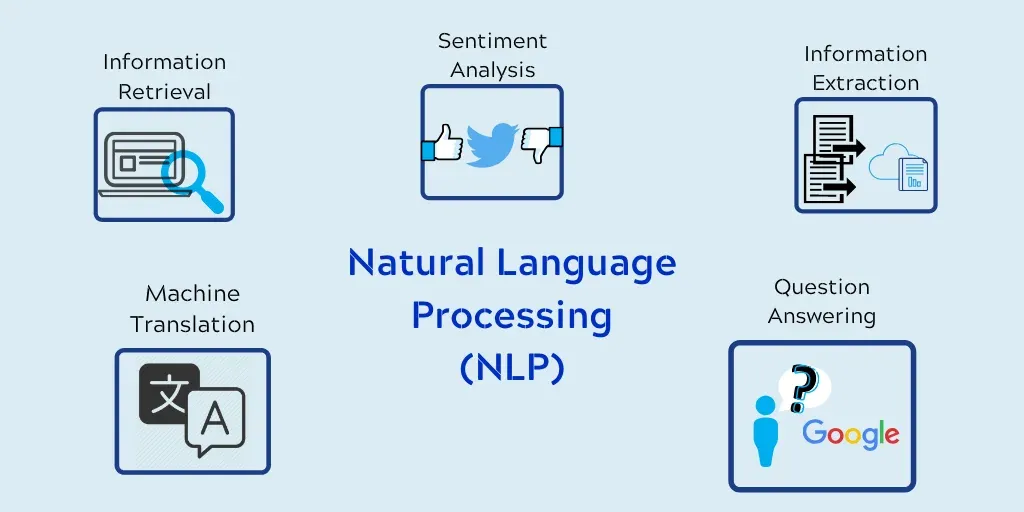
One of the primary considerations when choosing a chatbot with generative AI for education is its natural language processing (NLP) capabilities.
The chatbot should possess advanced NLP algorithms that enable it to accurately understand and interpret natural language input from students.
This includes comprehending questions, detecting nuances, and providing appropriate responses. A chatbot equipped with sophisticated NLP capabilities will enhance the efficacy of student interactions, fostering meaningful and engaging conversations.
Customizability and Personalization
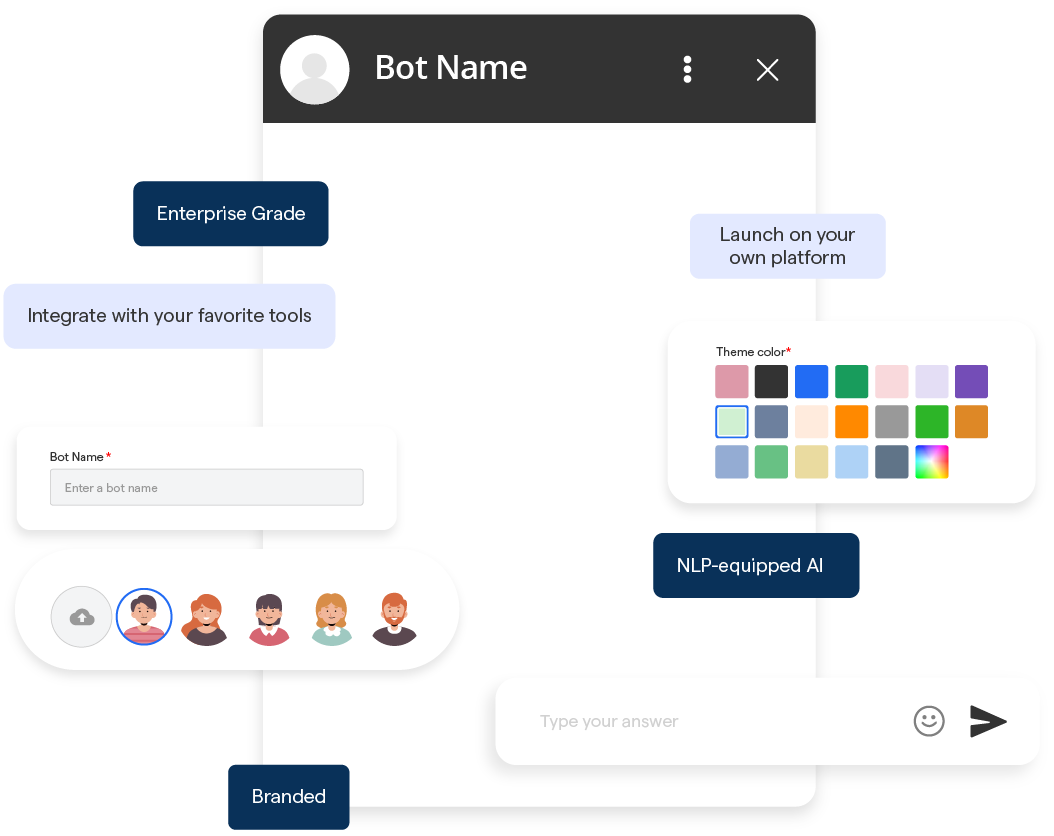
Educational institutions have unique requirements and teaching methodologies. Therefore, choosing a chatbot that offers customization options to tailor its behavior, responses, and features to align with these specific needs is crucial.
The chatbot should be able to adapt to different learning styles and knowledge levels, providing personalized assistance to students.
Customizability also extends to the chatbot's visual interface and branding, ensuring it integrates seamlessly within the institution's digital environment.
Learning Content Integration
To be truly effective in an educational setting, a chatbot should be able to integrate with existing learning content and resources.
It should be able to provide supporting material, references, and examples that align with the curriculum and learning objectives.
This integration will enable students to access relevant information within the chatbot interface, reducing the need for multiple platforms and enhancing the efficiency of the learning process.
Machine Learning Capabilities
A chatbot powered by generative AI should possess robust machine learning capabilities. This involves learning from user interactions and improving its responses over time.
The chatbot should be able to analyze student query patterns, identify improvement areas, and update its knowledge base autonomously.
With continuous learning, the chatbot can provide increasingly accurate and relevant responses, ensuring a high-quality educational experience for students.
Privacy and Security
In an educational setting, student privacy and data security are paramount.
When selecting a chatbot, it is imperative to ensure that it adheres to stringent privacy policies and maintains the confidentiality of student information.
The chatbot should comply with relevant data protection regulations and employ robust security measures to safeguard sensitive data. It is recommended to thoroughly review the vendor's privacy and security practices before integrating a chatbot into the educational environment.
Scalability and Ease of Integration
Considering an educational institution's potential growth and scalability, choosing a chatbot that can scale alongside the organization is important.
The chatbot should be easily integrated with existing systems and platforms, minimizing disruption during the implementation process.
Additionally, it should be capable of handling increasing volumes of student inquiries without sacrificing performance or response times. This scalability ensures a seamless user experience as the educational institution expands.
Analytics and Insights
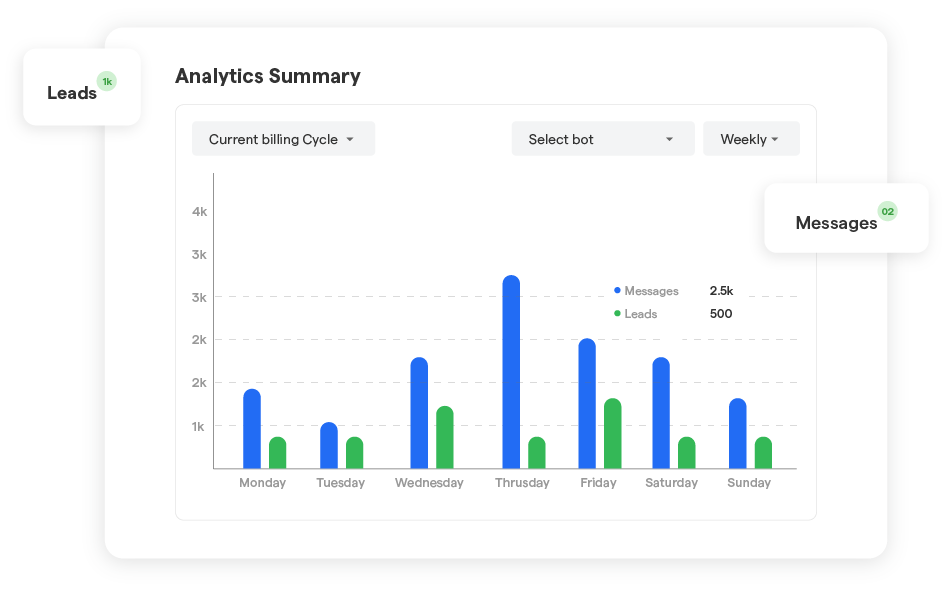
Lastly, a valuable feature of a chatbot for education is the provision of analytics and insights.
The chatbot should offer comprehensive tracking and reporting capabilities, allowing educators to gain valuable insights into student interactions, popular queries, and areas of improvement.
These analytics can inform instructional decisions, highlight knowledge gaps, and identify opportunities for enhancement, ultimately improving the overall educational experience.
Reviews and Feedback from Other Users
Considering reviews and feedback from other users before choosing a chatbot with generative AI for education is valuable.
Hearing about other users' experiences can provide insights into the chatbot's strengths, weaknesses, and effectiveness.
Investigating user reviews and testimonials can help educators make informed decisions and select a chatbot that has a positive track record in the educational community.
Suggested Redading:
Support and Maintenance
When implementing a chatbot with generative AI in an educational setting, it is important to consider the available support and maintenance provided by the vendor.
The chatbot should come with comprehensive support documentation, resources, and responsive customer support to address any issues or questions that may arise.
Regular updates and enhancements to the chatbot's functionality should also be provided to ensure its continued effectiveness and relevance.
Now, let us see about BotPengin, the leader of chatbots with generative AI.
Suggested Reading:
Why is Botpenguin's chatbot the leader in generative AI for education?
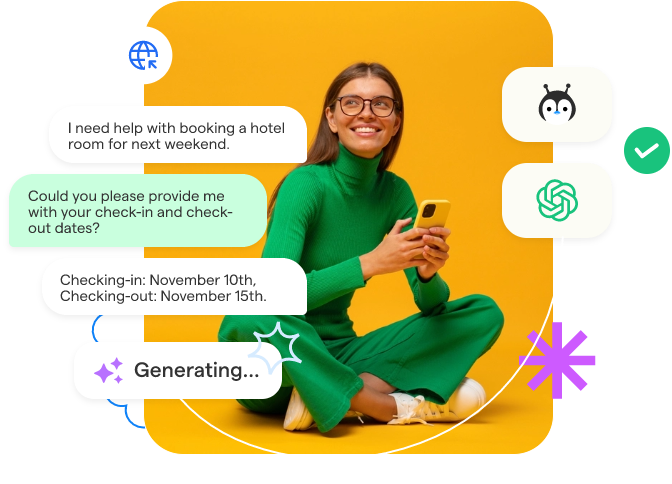
When choosing a chatbot with generative AI for education, Botpenguin emerges as a top player for several reasons.
Its unique features and capabilities offer educators and institutions a comprehensive solution for enhancing the learning experience. Botpenguin sets itself apart:
Reasonable Pricing
Botpenguin provides flexible and affordable pricing options for educational institutions. It offers a range of plans to suit different needs and budgets.
- The Baby Plan is free for up to 2000 messages, providing a cost-effective solution for smaller institutions.
- The King plan starts at just $5 and offers 3000 messages, ideal for institutions with moderate usage.
- The Emperor plan provides unlimited messaging for more extensive or custom requirements, ensuring scalability without breaking the bank.
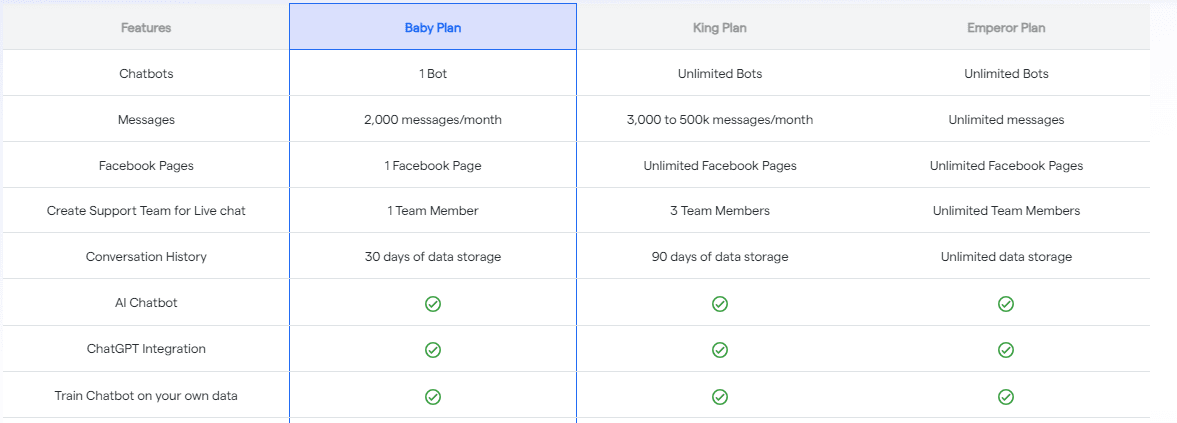
Integration With ChatGPT
Botpenguin's integration with ChatGPT, a highly advanced language model, enhances its generative AI capabilities for educational purposes.
This integration enables the chatbot to generate more accurate and contextually appropriate responses, facilitating a more effective learning experience.
Using the power of ChatGPT, Botpenguin can provide students with personalized and meaningful interactions, leading to improved engagement and understanding.
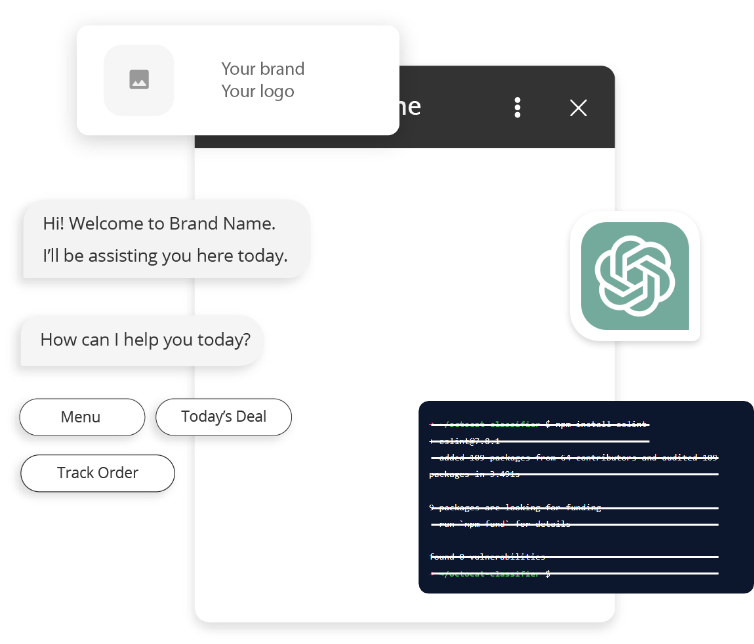
Easily Train Your Chatbot on Custom Data
One of the key strengths of Botpenguin is its ability to be trained on custom data.
Educators can easily input their unique teaching materials, resources, and curriculum into the chatbot.
Using this feature, the chatbot can provide highly personalized and relevant responses to student queries, enhancing the educational experience. This customization ensures that the chatbot aligns with the specific needs and requirements of the educational institution.
40+ Pre-made Templates
To simplify the implementation process, Botpenguin offers a wide range of pre-made templates specifically designed for education.
These templates cover various educational subjects, topics, and learning objectives, making it easier for educators to start without creating chatbot conversations from scratch.
These ready-to-use templates accelerate the setup process and allow educators to deploy a chatbot tailored to their educational content quickly.
60+ Native Integrations
Botpenguin provides seamless integration with over 60 platforms, making it a versatile solution for educational institutions.
The chatbot can be integrated with popular messaging platforms such as WhatsApp, Messenger, and Telegram, enabling students to access support and engage in learning conversations through their preferred channels.
This omnichannel approach enhances accessibility and ensures students can interact with the chatbot conveniently and effectively.
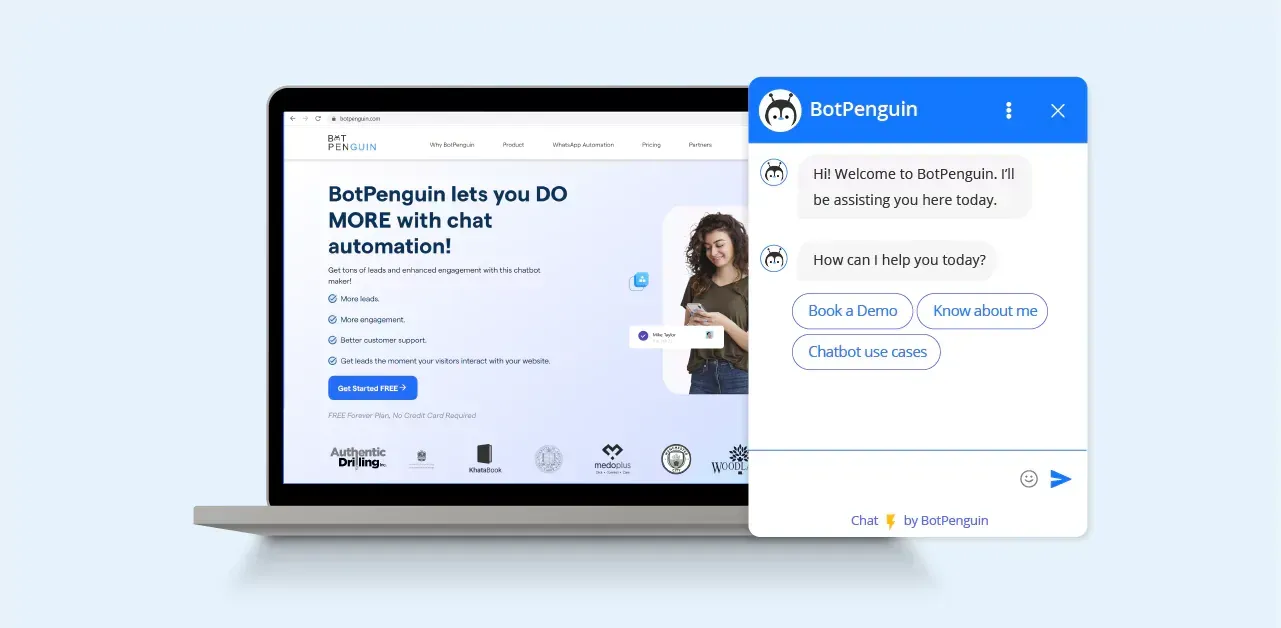
Native Live Chat Feature
In addition to its generative AI capabilities, Botpenguin offers a native live chat feature.
This feature allows educators and support staff to engage with students in real-time when necessary.
The live chat capability complements the chatbot's automated responses, seamlessly transitioning from automated support to human interaction.
This ensures that students receive prompt assistance and support, enhancing their learning experience.
Unlimited Chatbot Creation
Botpenguin's platform allows for creating multiple chatbots without limitations. This feature is particularly beneficial for educational institutions that require chatbot support for multiple subjects, courses, or departments.
Educators can create specialized chatbots for different topics, ensuring students receive focused and tailored support throughout their educational journey.
Voice Support Integration
Integrating Botpenguin with Twilio provides voice support functionality.
This integration enables students to interact with the chatbot through voice commands, expanding accessibility options and accommodating different learning preferences.
Voice support enhances the user experience and allows for a more natural and intuitive interaction with the chatbot.
Analytics
Botpenguin offers robust analytics capabilities, providing educators with valuable insights into student interactions and usage patterns.
The analytics feature enables the measurement of the chatbot's effectiveness, identifying areas for improvement and potential gaps in the learning process.
Educators can leverage these insights to refine their teaching methodologies and optimize the chatbot's performance to better support student needs.

Conclusion
Considering key factors like natural language processing, customization, content integration, machine learning, and privacy will help educators choose the best chatbot.
A powerful solution should understand students, improve over time, integrate seamlessly, and provide valuable insights. Botpenguin does all this and more through its feature-rich platform.
Botpenguin is the ideal choice for creating chatbots with generative AI for education.
It offers flexible pricing, powerful integrations with ChatGPT, and easy customization using your unique data and templates.
Botpenguin chatbots enhance learning engagement while providing analytics to optimize the experience.
Try Botpenguin risk-free to see how you can boost student outcomes with an effective generative AI chatbot.
Suggested Reading:
Frequently Asked Questions (FAQs)
What AI chatbot is best suited for educational purposes?
The best chatbot often depends on specific educational needs. Still, notable ones include BotPenguin, IBM Watson Assistant, Google's Dialogflow, and Microsoft's Azure Bot Service due to their adaptability and AI capabilities.
Can generative AI be integrated into educational chatbots?
Yes, generative AI is valuable in education, enabling chatbots to create dynamic, personalized responses that aid learning through interactive, adaptive conversations.
In what ways can generative AI benefit education?
Generative AI enhances education by facilitating personalized learning experiences, creating dynamic content, supporting students' queries, and adapting to individual learning styles.
How do AI chatbots contribute to educational settings?
AI chatbots aid education by providing instant student support, offering personalized learning paths, assessing progress, and enabling continuous engagement within learning environments.


